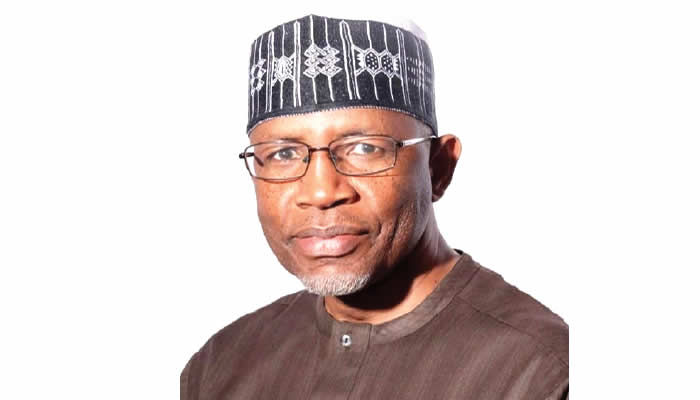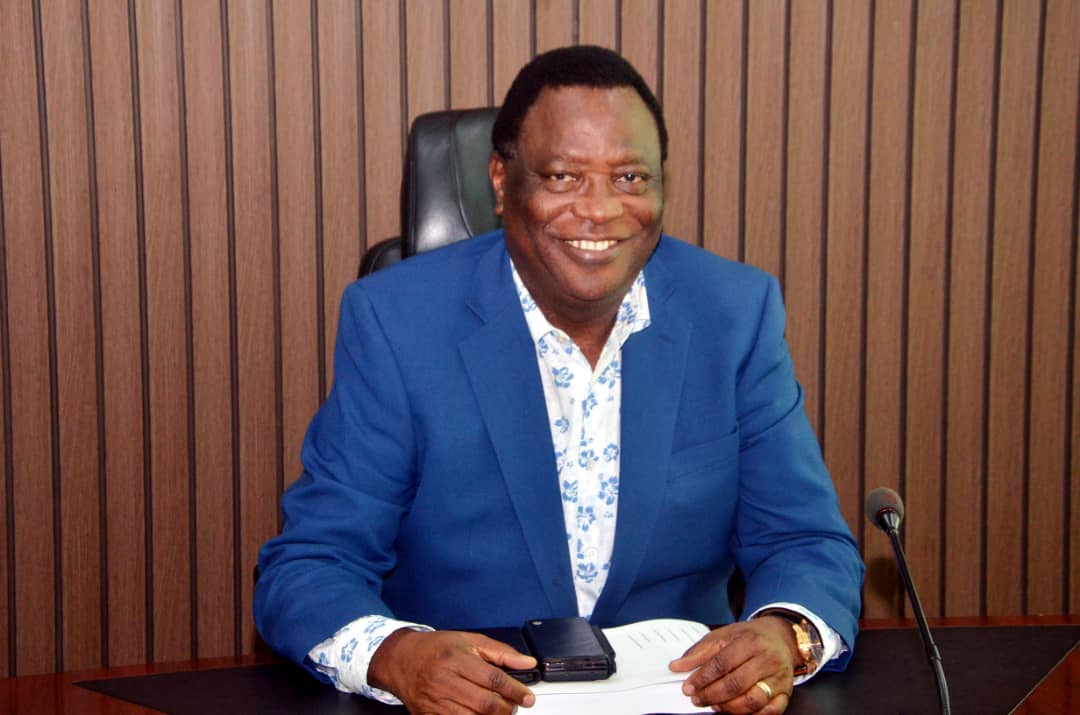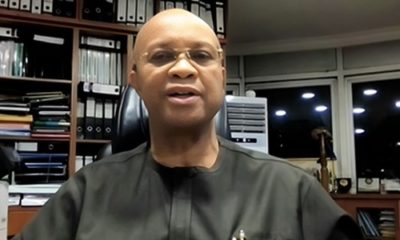Business
National Assembly Introduces Jail Terms For Ponzi Scheme Promoters

The Investment and Securities Bill, which might result in jail time for people who advocate Ponzi schemes in Nigeria has been passed by the National Assembly.
The Investment and Securities Service Bill 2023 finally scaled through the final hurdle of the National Assembly when the Senate passed it on March 29.
The bill, which is expected to aid the functioning of the capital market and facilitate the ongoing economic diversification in the country, had been passed by the House of Representatives in December. It is only awaiting presidential assent to become law.
At the plenary, the Senate President, Ahmad Lawan, stated that the bill is expected to protect investors, adequately regulate the market, reduce systemic risks as well as provide for more stringent punishment for operators of Ponzi schemes.
He said, “The bill for an act to repeal the Investments and Securities Act 2007 Act No. 29 2007 and enact the Investments and Securities Bill 2023 to service the SEC as the apex regulatory authority for the Nigerian capital market as well as regulation of the market to ensure capital formation, to protect investors, maintain fair, efficient and transparent market and reduction of systemic risk and for related matters is hereby passed.”
Speaking as of the time the House of Representatives passed the bill, the Chairman of the House Committee on Capital Markets and Institutions, Babangida Ibrahim, stated that the ISB 2023 was capable of transforming the capital market, attracting foreign investors as well as boosting investors’ confidence, among others.
Ibrahim said, “The bill seeks to repeal the existing Investments and Securities Act 2007 and to establish a new market infrastructure and wide-ranging system of regulation of investments and securities businesses in Nigeria, especially in the areas of derivatives, systematic risk management, financial market infrastructure and Ponzi scheme and platforms.”
One of the developments that the new bill brings is the prohibition of Ponzi/Pyramid schemes, which have led to the loss of billions of naira on the part of victims and also affected confidence in the investment climate in Nigeria.
The passed bill prohibits Ponzi/pyramid schemes as well as other illegal investment schemes and prescribes a jail term of not less than 10 years for promoters of such schemes.
Ponzi schemes, also known as pyramid sales schemes, are a money laundering system where investors are lured in with the promise of high returns on investment after a specified period.
The system runs in a somewhat cyclic fashion by paying old investors with deposits of new investors. Usually, this cycle becomes unsustainable when the backlog of old investors eligible for payments exceeds the investments coming into the system.
According to Nigeria’s Securities and Exchange Commission, three million Nigerians lost N18bn when the popular Ponzi scheme, Mavrodi Mundial Movement aka MMM, crashed in 2016. As of 2022, Nigerians have lost over N300bn in Ponzi schemes in five years, according to a report generated by the Norrenberger Financial Investments scheme.
The promoters of a popular investment scheme, Ovaioza Farm Produce Storage Business Limited, are facing prosecution for luring members of the public to an unregistered collective investment scheme. The promoters, Imu Yunusa and Goodness Omeiza have been accused of defrauding their victims up to N2bn.
Reacting to the introduction of the prohibition of Ponzi schemes, Chief Executive Officer of Enterprise Stockbrokers, Mr Rotimi Fakayejo, said that the move was long overdue and a welcome idea.
He said, “I remember very well, this Ponzi scheme that got a lot of people in trouble, MMM. In the end, it is not just about people losing money. It is the disinterestedness in investing. First, they invested in the wrong window and ultimately, they will not invest again.
“Some foolishly and gullibly invested in it and some because of ignorance entered into it and others because of greed. Those who entered into it because of greed know what they were doing, they are just greedy. But the ones who get into it ignorantly, not knowing that such schemes are not authorised by the SEC are the ones who may never enter into any viable or regulated investment window again. Every economy needs investment, for money to be revolving through profitable channels.”
Fakayejo also argued that both those who get involved in Ponzi schemes and their promoters should be punished, albeit, the sanctions would be different.
He said, “The person who goes into it should get a small punishment and the person that starts the scheme should get a huge penalty. For anything, you are supposed to make findings.”
Regarding the proposed jail term of not less than 10 years, Fakayejo stated that the inclusion of asset forfeiture and also a fine of 10-20 per cent of the amount of money collected from victims may not be a bad idea.
Expressing a divergent opinion on the Ponzi scheme prohibition, the National Chairman of the Progressives Shareholders Association of Nigeria, Boniface Okezie, stated that Ponzi schemes have been embraced in other places.
“The Ponzi scheme has worked elsewhere; people have embraced it but the Nigerian market has not embraced it and SEC said that it is not known to them and that it is a scam and so they cannot allow Nigerians to patronize it.”
Okezie also accused the National Assembly of copying foreign laws that may have little or no impact on the Nigerian scene and doubted that the President, Major General Muhammadu Buhari (retd) would sign the bill before the expiration of his tenure next month.
The PSAN boss said, “I do not think the outgoing president will assent to that bill before he leaves office on May 29 because previous bills sent to him, it took him time to assent, not to talk of now that he is going for retirement.”
Speaking on some highlights of the bill in a statement released after the Senate passed the bill, the Director-General of the Securities and Exchange Commission, Lamido Yuguda, said that a recommendation was made in the bill for the inclusion of the National Pension Commission on the SEC board for increased collaboration between the two agencies, particularly to encourage greater investment of pension funds and in capital market products/instruments.
This is a welcome development, according to stakeholders, given the visible role that pension funds play in the capital market already.
Capital market operator, Fakayejo, said that Pencom having a seat on the board of SEC was long overdue.
He said, “The pension funds have been a major investor in the capital market. Look at all the major instruments, either bonds or equities, commercial papers, at the different classes of bonds, whichever way you want to look at it, the pension funds are the largest investors. So, I believe they should have a say in how the market is being regulated.”
Okezie also agreed, saying that the pension funds had been a major player in the capital market.
He said, “The Pension Fund has contributed to a large extent to what are seeing today of the rallying in the capital market. If they are investing in the SEC-regulated market, they should be mindful of where they invest their money so that their money does not get trapped when they need to pay those retirees.”
Commenting on the bill being able to boost investors’ confidence and attract foreign investments like the Chairman of the House Committee on Capital Markets and Institutions, had boasted, Fakayejo, pointed out that the reasons foreign investors left and are leaving are still very much around.
He said the unstable exchange rate was a major deterrent for foreign investors.
“I don’t see anything in the bill that is a plus for foreign portfolio investment. You and I know that the reason they are not here or why they have taken away their money is the instability of the naira. That has been the basic reason they (FPIs) are not here.”
Professor Olawale Ajai of the Lagos Business School also agreed that the country’s business environment has not been investment-friendly.
Ajai said, “Insecurity and the opaque naira foreign exchange regime have not helped in recent times, in spite of strenuous efforts on ‘doing business reforms.’”
Others highlights of the bill include the expansion of the categories of issuers as a key step towards the introduction of innovations and offerings such as crowd-funding as well as the facilitation of “commercial and investment business activities”, subject to the approval of the commission and other stipulated controls.
The bill also expands the definition of a Collective Investment Scheme to include schemes offered privately to qualified investors, and contains an entirely new part which regulates Commodity Exchanges and Warehouse Receipts.
The SEC DG said that the new parts of the bill “are essential for developing the entire gamut of the Commodities ecosystem”.
According to him, a new part on the management of systemic risk has been introduced, covering the following themes: monitoring, management and mitigation of systemic risk in the Nigerian capital market; arrangements with other regulators relating to information required from entities that are regulated by other regulators; sharing of information between financial sector regulatory authorities or government agencies; and use of a legal entity identifier to provide for proper monitoring of systemic risks.
The proposed legislation categorizes Securities Exchanges as either composite or non-composite exchanges. A composite exchange allows for the listing and trading of all types of securities and products, whereas a non-composite exchange specializes in a single type of security or product.
Additionally, the bill expands the responsibilities of exchanges and outlines clear guidelines for revoking registration. It also introduces new provisions regarding Financial Market Infrastructures, such as Central Counter Parties, Clearing Houses, and Trade Depositories.
Business
JUST IN: NDIC Boosts Deposit Insurance For Banks
The Nigeria Deposit Insurance Corporation (NDIC) has announced revisions to the Maximum Deposit Insurance Coverage for banks operating within the country.
NDIC’s Managing Director, Bello Hassan, disclosed the updated coverage benchmarks during a media briefing in Abuja on Thursday.
The coverage for Deposit Money Banks has been increased from N500,000 to N5 million, for Microfinance Banks from N200,000 to N2 million, for Primary Mortgage Banks from N500,000 to N2 million, and for Mobile Money Operators subscribers’ pass-through from N500,000 to N5 million per subscriber.
Hassan underscored that the objective of the update is to enhance depositor safety, foster public trust, promote the inclusivity of financial services, and ensure the overall stability of the financial sector.
More to follow.. . .. .
Business
Shareholders Pass Key Resolutions At NGX’s 63rd AGM

The 63rd Annual General Meeting (AGM) of the Nigerian Exchange Group Plc (NGX Group), held at the Nigerian Exchange Group House on Monday, April 29, 2024.
During the gathering, the Group concluded on ordinary and special business matters, while also unveiling plans to embark on a comprehensive digital transformation strategy to expand its business operations in line with its overarching strategy.
The meeting’s agenda, approved by the Board of Directors, included the declaration of a final dividend, ratifying the appointment of Temi Popoola as the Group Managing Director/Chief Executive Officer of NGX Group, presenting financial statements to shareholders, re-electing non-executive directors retiring by rotation, authorizing, and disclosing remuneration, among other undertakings.
Notably, the NGX Group, subject to regulatory approval, discussed its authorization on a rights issue to raise capital of up to N10 billion with a subjoined resolution to increase its share capital to sufficiently accommodate the rights issue.
All resolutions were approved by shareholders just as appointment and reelections of directors were ratified.
Following substantial authorization across its agenda, the NGX Group introduced plans to propel the markets with a digital transformation journey that includes an online platform for public offers and deep investments in its technology stack amongst others.
The platform will provide a smarter and efficient way for Issuers to raise capital and enhances the subscription process and operational workflow of POs in the capital market including initial public offerings (IPOs), rights issues and other public offers.
On the development, the Group Chairman, NGX Group, Umaru Kwairanga said, “I am particularly grateful to our shareholders for their assent to the critical business we conducted today. As the Board oversees the strategic direction and gives management the necessary support and guidance, we believe that the coming year will be a better one in terms of value created for our shareholders.
“NGX Group is positioned to capitalize on opportunities amid the positive and forward-looking reforms by the government and our stakeholders should rest assured we will deliver excellently.”
On his part, Group Managing Director/Chief Executive Officer, NGX Group, Temi Popoola, said, “As we complete our 63rd AGM, I extend my sincere gratitude to our shareholders, customers, employees, regulators, and directors for their steadfast support. In a year that underscored NGX Group’s strategic agility and operational excellence, we witnessed growth stemming from our dynamic revenue streams. We are optimistic and well-positioned to forge a future marked by success, resilience, and prosperity.
Addressing the digital transformation agenda, Popoola stated, “The future of our business and the capital markets hinges on technology. That is why we are driving this digital transformation journey across our subsidiaries through the Group. NGX Group’s digital transformation will democratize access to public issuances for every Nigerian with a mobile phone, supporting capital-raising efforts for companies. Additionally, we aim to commercialize our technology solutions and expand our footprint across Africa”.
Key insights and proceedings from the NGX’s AGM can be accessed via the live recording available on NGX Group’s website at www.ngxgroup.com.
Business
NCDMB Receives N450m Interim Dividend From Waltersmith Modular Refinery

. . . Firm Declares N4.5bn Dividend For 2023
The Nigerian Content Development and Monitoring Board (NCDMB) has announced that it had received an interim dividend payment of N450 million out the N1.5bn declared by the Waltersmith Refinery and Petrochemical Company Limited.
The NCDMB made the disclosure on Monday, adding that the payment represented NCDMB’s 30% share in the company for the year ended 2023.
Recall that the NCDMB had in July 2018 invested $10m to acquire 30% stake in the 5000 barrels-per-day (bpd) modular refinery project located at Ibigwe, Imo State, to support the Federal Government’s policy on modular refinery, stimulate investment and create employment opportunities.
Rising from a Board Meeting of Waltersmith Refinery and Petrochemical Company Limited, the Executive Secretary, NCDMB, Engr. Felix Omotsola Ogbe confirmed that a total dividend of N4.5bn had been approved for the year 2023, pending final approval at the Annual General Meeting (AGM).
The company reported a total profit of N23.6bn as profit after tax for the same year.
The Executive Secretary hinted that NCDMB expects to receive additional 30 percent of the outstanding N3bn dividend after the AGM is convened later this year.
He added that the receipt of this interim dividend payment was a testament to the strong performance and profitability of Waltersmith Refinery and Petrochemical Company Limited.
He said, “The NCDMB is proud to be a part of this success and looks forward to continued collaboration with the company in the future.”
He affirmed that the company was upscaling the refinery capacity from 5000 bpd to 10,000bpd and the expansion project was already 44 percent completed and on time to be commissioned by early 2025.
The NCDMB’s investment in the Waltersmith project was also geared to catalyse the industrialisation of the Nigerian oil and gas industry and its linkage sectors and deepen Nigerian Content in the oil and gas industry. It was the first third-party investment embarked by the Board, and it provided proof of concept and paved the way for other successful investments by the Board.
Two weeks ago, NCDMB received a cheque of $1 million from Nedogas Development Company Limited (NDCL), being part of the return on investment (ROI) on one of the Board’s strategic investments.
The cheque was presented by the Chairman of the company, Engr. Emeka Ene when he visited the Nigerian Content Tower in Yenagoa Bayelsa State, where he was received by the Executive Secretary, Engr. Felix Omatsola Ogbe and other members of the Board’s management.
Nedogas Development Company Limited (NDCL) is a joint venture company between Xenergi Limited and NCDMB Capacity Development Intervention Company and it culminated in the construction and commissioning of a 300 MMscfd Capacity Kwale Gas Gathering (KGG) and injection facility located in the Umusam Community, near Kwale in Delta State, Niger Delta, Nigeria.














